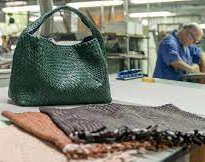The turnover of the sector towards 107 billion, +16% on 2021 and +9% on 2019. Uncertainty for the new year, but orders for the spring-summer 2023 collections are already very positive. [Industria della moda da record, prima volta sopra i 100 miliardi - ilsole24ore]
"An exceptional year, the best ever": this is how Carlo Capasa, president in the fifth term of the National Chamber of Fashion, defines 2022, without fear of being criticized for excess of optimism. The data on the textile-fashion-accessory sector (Tma) of the association that organizes, along with many other events, the four Milan fashion weeks (two for women, two for men), speak clearly and it is good to start from the strength and security that give the numbers of the year that is about to close to look at 2023, which promises to be "the most uncertain ever".
Already on December 14, on the occasion of the presentation of the men's fashion week in January, Capasa had stressed how difficult it was to hypothesize the 2023 trend of a sector that exports 70% and that in 2022 has touched 100 billion in turnover (107 according to the even more rosy estimates of Confindustria Moda). "It is an exercise, that of forecasts, that we always do, but what has happened in the last two weeks, especially in China, recommends a very cautious approach – reiterates Capasa -. There is a concrete indication: the orders of the spring-summer 2023 collections are very positive, but we must wait for the first two months of 2023 to have a more precise picture. Certainly we can say that the Italian supply chain, from the manufacturing and artisan part upstream and that of the big brands downstream, is at the center of the global fashion industry».
Optimism of the numbers also from Confindustria Moda: "Based on the first indications on the end of the year, the 2022 turnover of the TMA should stand at 107 billion, up 16% on 2021 and 9% on 2019", reads the latest rapid economic survey of the federation. Confindustria Moda brings together the main sector associations – Sistema moda Italia (Smi), Assopellettieri, Anfao (eyewear), Assocalzaturifici, Aip (furs), Federorafi and Unic (tannery) –, represents 65 thousand companies, which employ (without calculating the related activities) to just under 600 thousand people. "The concern that emerged from the survey is not so much about turnover, but about the increase in costs and the impact on profits – underlines Ercole Botto Poala, president of Confindustria Moda -. In view of an increase in demand from the markets, the lack of professional figures for the various sectors of the TMA is also worrying».
Two months ago the federation organized the second edition of Fashion Talent Days, an online event to illustrate the over 40 professional figures that the sector is looking for and will increasingly need in the coming years: from the 2022 Excelsior-Unioncamere report it emerges that the TMA in the period 2022-2026 will be able to hire between 63 thousand to 94 thousand people, depending on the economic situation.
Sergio Tamborini, CEO of the Ratti textile group and president of SMI, the most important association for the number of companies and employees of Confindustria Moda, insists on training and reshoring: "The pandemic has accelerated a process that was already underway, bringing back to Italy production that had been relocated to the Far East and, in some cases, to Eastern Europe. I believe that the trend will continue, also in light of transport costs and geopolitical uncertainty," explains Tamborini. However, he adds very lucidly: "Reshoring is good news for TMA companies and for Italy, because we remain a driving force of the economy and the image of the country abroad. But you cannot reshore raw materials, while trying to increase energy independence. The chemical materials that serve the upstream part of the supply chain almost all come from China and the noble raw materials, from cotton to silk to cashmere, are all imported. We are very satisfied with 2022, but we cannot hide the unknowns about 2023. The positive thing is that the crises of recent years have confirmed the ability of the TMA and the Italian production sector as a whole to react and reinvent itself", concludes the president of SMI.



